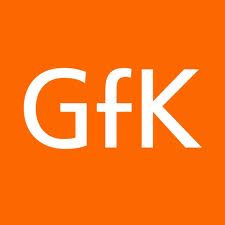 Nuremberg, 26 October 2012 – The consumer mood in Germany improved slightly in October. Income expectations were noticeably up while economic expectations and the indicator reflecting willingness to buy also recorded minor increases. The overall indicator is forecasting 6.3 points for November, after the revised 6.1 points of October.
Nuremberg, 26 October 2012 – The consumer mood in Germany improved slightly in October. Income expectations were noticeably up while economic expectations and the indicator reflecting willingness to buy also recorded minor increases. The overall indicator is forecasting 6.3 points for November, after the revised 6.1 points of October.
The fear of a recession did not increase further among consumers in Germany during fall this year. For the second time in a row, the economic indicator is slightly up and has stabilized at a low level. After a three-month downward trend, economic expectations are considerably up in October. As a result, the steady trend in the willingness to buy also continued this month. Consequently, the propensity to consume is a little higher and the consumer climate slightly brighter. This development is supported by the downward trend in consumers’ propensity to save.
Economic expectations: at low but steady level
For the second consecutive time, economic expectations of consumers have improved modestly. The indicator has risen 1.4 points in October and now stands at -15.8 points. Economic sentiment has therefore stabilized at a low level. In summer this year, fear of a recession was widespread, but it is now diminishing.
It remains to be seen whether this trend already marks a turning point in economic expectations. The signals from the economy are not particularly encouraging at the moment. This mainly applies to exports to the eurozone. A marked recessionary trend in many parts of Europe has considerably weakened exports to the eurozone countries. These export losses are currently only partially compensated by growth in Asia and the USA. In addition, the upturn in the labor market has come to a halt in the fall.
The slowdown in economic activity is probably one of the main reasons for both the leading economic research institutes revising their growth forecasts for 2013 considerably downwards in their autumn report and the German government doing the same in its latest forecast. For 2013, they now only expect economic growth of approximately one percent. The mood at management level in German companies is continuing to deteriorate. The ifo business climate index fell in October, which is the sixth consecutive decrease.
Income expectations: positive trend reversal
After three consecutive months of decreases, income expectations are perceptibly up in October. An indicator increase of 6 points has largely compensated the previous month’s decrease. At present, the indicator value is 29.9 points. Although it is down 6.6 points on the same period in the previous year, the level of the income expectations indicator is still extremely strong.
Alongside the less pessimistic economic expectations of consumers, the income expectations indicator continues to benefit from the stability in the labor market. Although the reduction in unemployment has recently come to a halt, experts anticipate a steady level of employment in the coming year, despite the economic slowdown. Together with the positive trend in wages and salaries, which also climbed in real terms, the labor market currently provides key support for income expectations. The rate of inflation fell slightly in September and delivered a positive signal regarding the trend in the purchasing power of households.
Willingness to buy: remains at a high level
There has been little variation in consumers’ willingness to buy. Following no evident change at all in the previous month, the indicator has slightly risen in October by 0.8 points. Its level is currently at 33.9 points. This marked stability in consumers’ willingness to buy is also confirmed by the indicator continually ranging between 30 and 40 points for the past two years.
The reasons for the remarkably steady trend in the willingness to buy are unchanged. Stable labor market figures, a positive overall trend in wages and salaries and modest inflation bolster the indicator decisively. In addition, consumer willingness to buy is boosted by the downward trend in saving recorded in October. Ongoing uncertainty about further developments in the banking industry combined with an historically low interest rate level are not the best conditions for saving. Instead, consumers are tending to invest their money in higher value purchases rather than bank deposits.
Consumer climate: rises again
The overall indicator forecasts 6.3 points for November, after the revised 6.1 points in October. The consumer climate is therefore slightly rising again. Consumption will play an increasingly important role for the further economic development in Germany. The weaker global economy is set to affect German exports. Accordingly, brisk consumption will be necessary to prevent Germany from sliding into recession.
GfK confirms its forecast published at the beginning of the year that consumer spending will rise in real terms by around one percent this year.
These findings are extracts from the “GfK Consumer Climate MAXX survey”, which is based on around 2,000 consumer interviews conducted each month on behalf of the EU Commission. The report contains charts, forecasts and a detailed commentary regarding the indicators. In addition, the report includes information on proposed consumer spending in 20 different areas of the consumer goods and services markets. The GfK Consumer Climate survey has been conducted since 1980.
About GfK
GfK is one of the world’s largest research companies, with more than 11,500 experts working to discover new insights into the way people live, think and shop, in over 100 markets, every day. GfK is constantly innovating and using the latest technologies and the smartest methodologies to give its clients the clearest understanding of the most important people in the world: their customers. In 2011, GfK’s sales amounted to €1.37 billion.
To find out more, visit www.gfk.com
